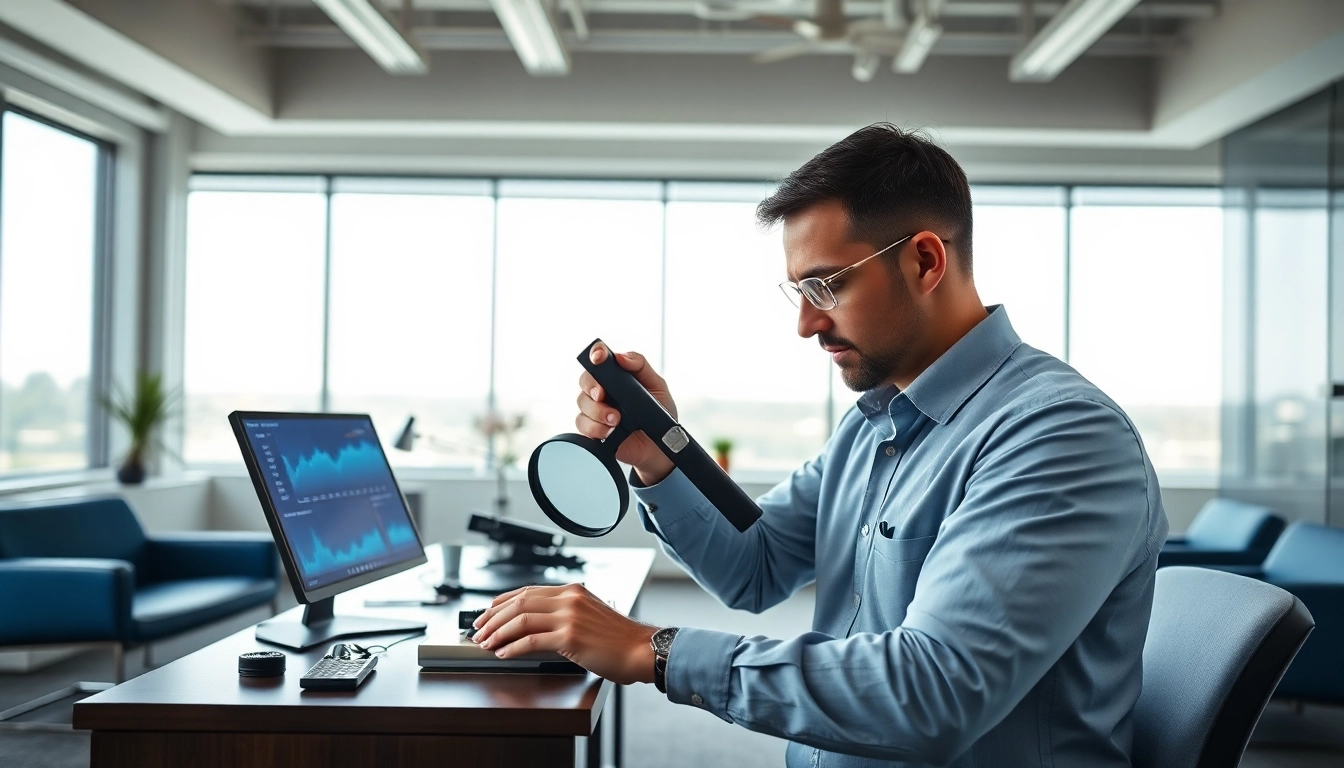Understanding Water leak Detection Specialist Services
Water leaks can lead to significant damage in homes and businesses if not identified and addressed promptly. Thus, the services provided by a Water leak Detection Specialist are invaluable for maintaining property integrity and preventing costly repairs. In this article, we will delve into the role, technologies, and benefits of hiring a water leak detection specialist.
What Does a Water leak Detection Specialist Do?
A water leak detection specialist is trained to identify leaks in plumbing systems, which can be hidden or obvious. Their services include using advanced methods to pinpoint the source of leaks quickly, providing a detailed report on their findings, and often recommending repair solutions. They are equipped with specialized tools and technologies that make it possible to detect leaks without invasive methods, thereby minimizing disruptions in a property.
Key Technologies Used in Water Leak Detection
Water leak detection specialists employ various technologies to identify leaks accurately and efficiently. Some of the key technologies include:
- Acoustic Leak Detection: This method uses sound waves to detect leaks. The specialist can listen to the sound produced by water escaping through pipes, even underground or within walls.
- Infrared Thermography: Infrared cameras can detect temperature differences in walls and floors, indicating the presence of moisture due to leaks.
- Tracer Gas Detection: A safe, non-toxic gas is introduced into the plumbing system. The specialist then uses a sensor to locate the emission point, indicating a leak.
- Moisture Meters: These handheld devices measure moisture levels in materials, helping specialists identify water intrusion points.
Benefits of Hiring a Water leak Detection Specialist
Engaging a water leak detection specialist brings several advantages:
- Expert Insight: Specialists possess extensive knowledge and training, allowing them to identify issues that an untrained eye might overlook.
- Cost-Effective Solutions: Timely detection of leaks prevents extensive damage and costly repairs later on, saving homeowners significant expenses.
- Minimized Disruption: Advanced detection techniques allow for non-invasive examinations, which means less disruption to your home or business.
- Comprehensive Assessment: Specialists provide thorough diagnostic testing and can recommend the necessary repairs or maintenance to prevent future leaks.
Common Types of Water Leaks
Identifying Hidden Water Leaks in Your Home
Hidden water leaks are particularly dangerous as they often go unnoticed until substantial damage has occurred. Common sources include:
- Leaks behind walls from broken pipes or plumbing connections.
- Sub-slab leaks affecting the foundation, often leading to structural issues.
- Ceiling leaks from roofs or upper-floor plumbing.
Detecting these leaks early can prevent extensive water damage, mold growth, and higher utility bills.
Understanding Slab and Pipe Leaks
Slab leaks occur when water pipes beneath the concrete foundation of a building leak. These can lead to significant structural damage if not addressed. Symptoms of slab leaks include:
- Unexplained water puddles on the floor.
- Constantly running water meter.
- Warm spots on the floor, indicating hot water leaks.
Pipe leaks can occur anywhere in a plumbing system and can be identified by similar indicators, including water stains, frequent need for repairs, and increased utility bills.
Signs You Need a Water leak Detection Specialist
Knowing when to call a specialist can save you from extensive repairs. Signs indicating a potential leak include:
- Sudden spikes in water bills without apparent reason.
- Wet spots on walls, ceilings, or floors.
- Musty odors, indicating potential mold or mildew growth.
- Constantly running toilets or fixtures that seem to waste water.
The Process of Water Leak Detection
Initial Assessment by a Water leak Detection Specialist
The leak detection process typically begins with an initial assessment. The specialist will evaluate the property for visible signs of water damage and review the plumbing system’s history. This may involve asking questions about any recent changes or issues noted by the homeowner.
Steps Involved in Detecting Water Leaks
The steps in the leak detection process usually include:
- Visual Inspection: The specialist performs a thorough visual assessment of all visible plumbing fixtures and the surrounding areas.
- Testing for Moisture: Using moisture meters, the specialist checks areas that appear damp or suspect.
- Leak Detection Technology: Advanced technologies are employed to pinpoint the source of the leak accurately.
- Reporting Findings: Once the investigation is complete, the specialist provides a detailed report with findings and recommendations for repairs.
Advanced Techniques for Accurate Leak Detection
While many leaks can be found using traditional methods, advanced techniques provide higher accuracy and efficiency. Specialists may integrate the following in their detection methods:
- Digital Leak Sound Detection: This uses specialized audio equipment to listen for the distinct sound of water escaping.
- Ground Penetrating Radar (GPR): GPR systems can identify subsurface anomalies that might indicate hidden leaks.
Combining these advanced techniques leads to more accurate diagnosis, reducing time and labor costs.
Preventative Measures Against Water Leaks
Regular Maintenance Checks by a Water leak Detection Specialist
Traditional wisdom states that an ounce of prevention is worth a pound of cure. Regular maintenance checks by a water leak detection specialist help ensure that any potential issues are addressed before they escalate. Recommended maintenance practices include:
- Annual plumbing inspections.
- Checking for signs of leaks around appliances that use water.
- Monitoring the condition of exterior hoses and faucets.
Implementing Waterproofing Techniques
In addition to regular maintenance, employing waterproofing techniques can minimize the risk of leaks. Homeowners can consider:
- Applying water-resistant coatings to surfaces prone to moisture.
- Using waterproof membranes in basements and crawl spaces.
- Ensuring proper drainage systems are in place to redirect water runoff.
Creating a Leak Response Plan for Homeowners
Having a proactive response plan empowers homeowners to act quickly in the event of a detected leak. A comprehensive plan might include:
- Emergency contact information for a water leak detection specialist.
- Steps to shut off water supply in case of a major leak.
- Emergency service providers for mold remediation if leaks are left unchecked.
Choosing the Right Water leak Detection Specialist
Factors to Consider When Hiring a Water leak Detection Specialist
Choosing the right specialist can make a significant difference in the effectiveness of leak detection services. Some factors to consider include:
- Experience: Look for specialists with extensive experience and track records.
- Technology Used: Inquire about the types of detection equipment and technologies they employ.
- Licensing and Insurance: Ensure the specialist is properly licensed and insured to conduct plumbing work.
Questions to Ask Before Service
When interviewing potential leak detection specialists, consider asking the following questions:
- What methods do you use for leak detection? How do they compare to each other?
- Can you provide references or case studies from previous clients?
- What are your rates, and do you provide estimates before starting work?
Evaluating Expertise and Customer Service
It’s essential to evaluate not just the technical qualifications of a water leak detection specialist but also their level of customer service. Look for:
- Responsiveness to inquiries and service requests.
- The availability of post-service support for any follow-up issues.
- Professionalism during initial consultations and service appointments.


